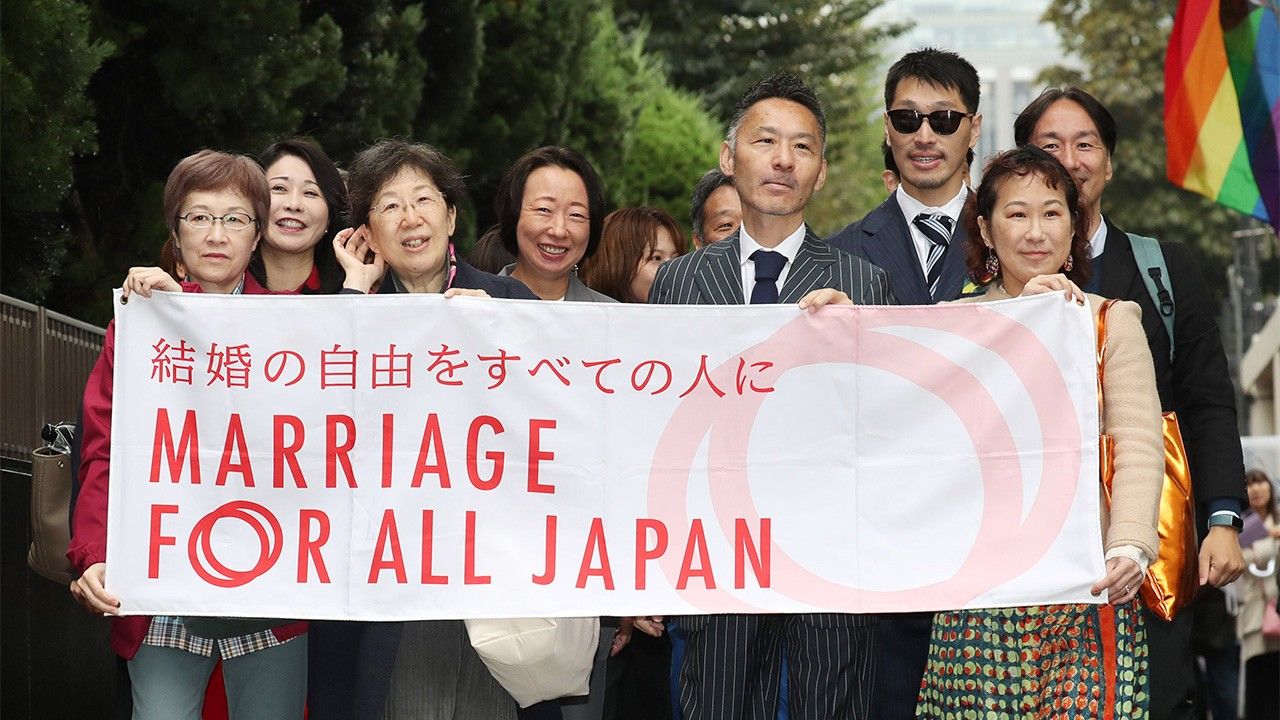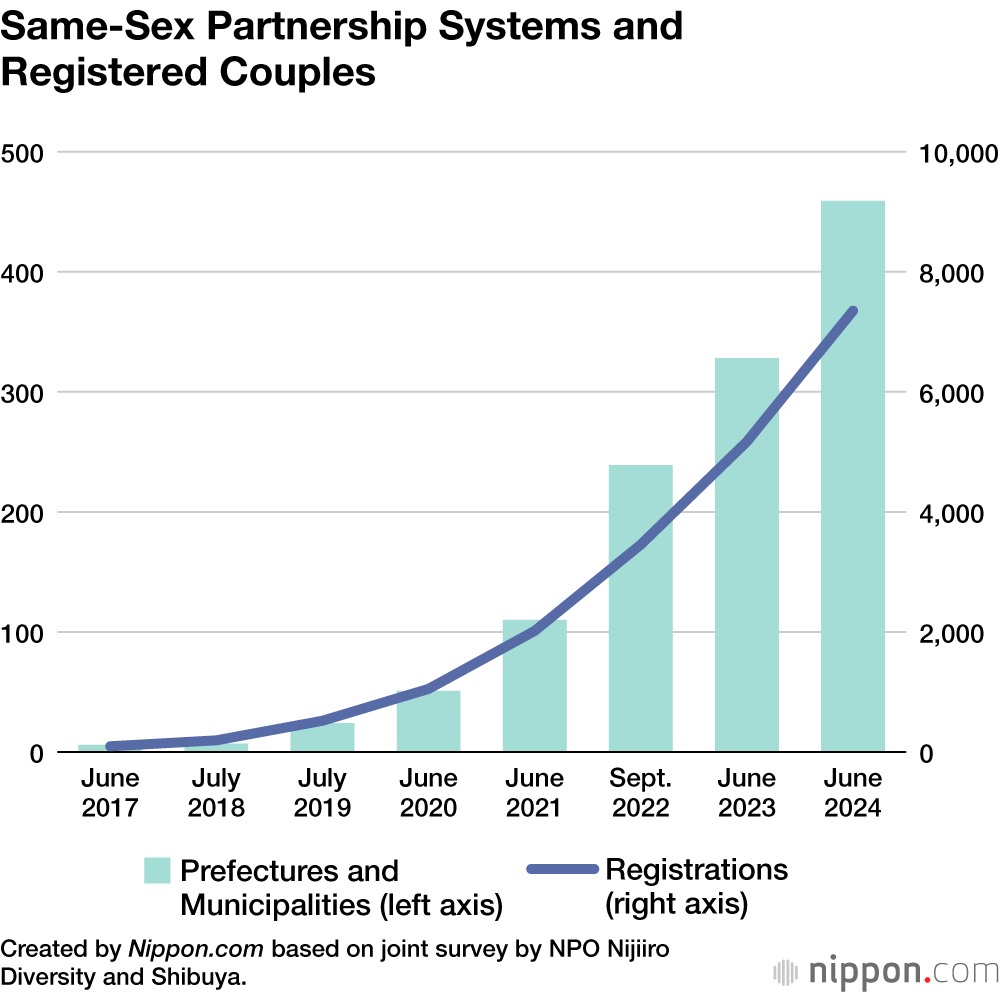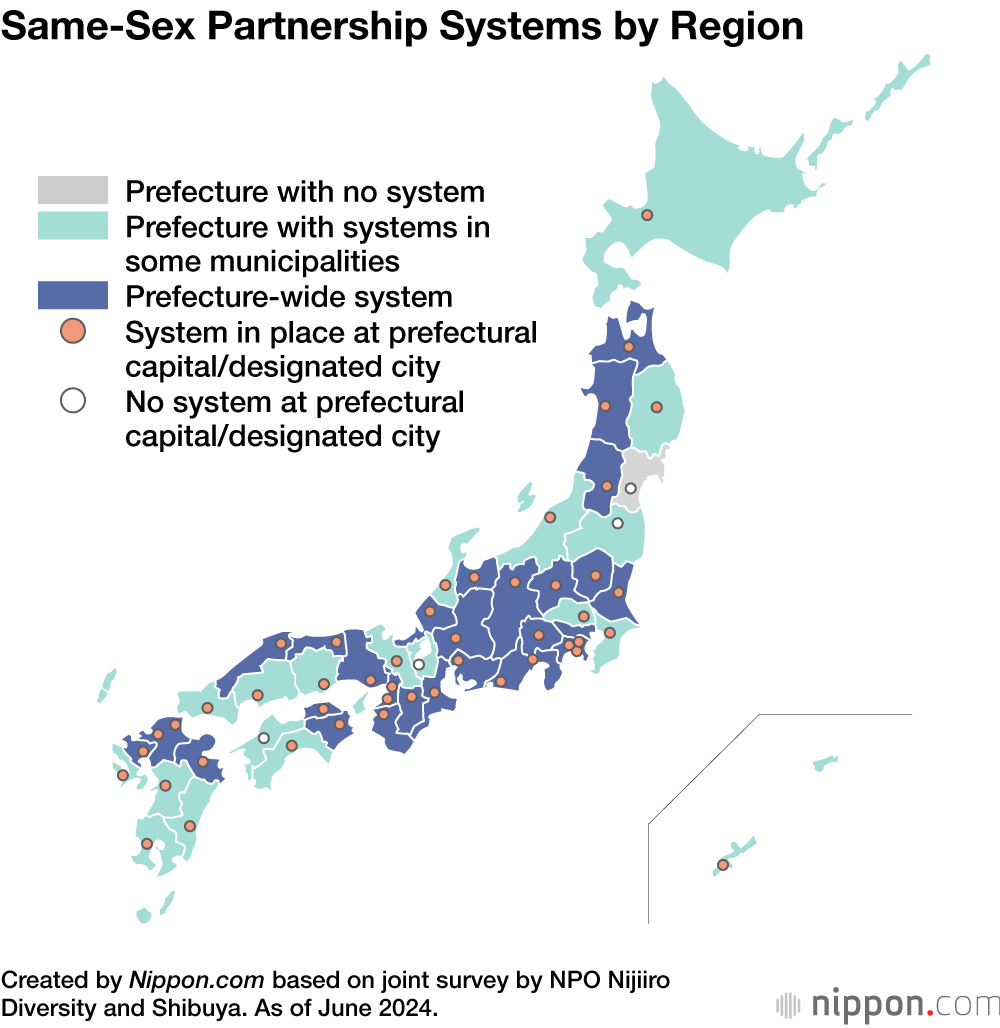
Same-Sex Partnership Systems in Japan Expand to Cover 85.1% of Population
Society Family- English
- 日本語
- 简体字
- 繁體字
- Français
- Español
- العربية
- Русский
A survey conducted jointly by NPO Nijiiro Diversity and Shibuya municipal government in Tokyo found that 459 Japanese prefectures and municipalities have adopted same-sex partnership systems as of June 2024. The total has more than doubled in two years from 219 as of June 2022. At present, 85.1% of the population in Japan has access to such systems with a total of 7,351 partnership certificates having been issued to couples as of May 31.
Under partnership systems, same-sex couples who live together can register for a certificate recognizing their relationship as equivalent to marriage. Obtaining a certificate makes it possible for same-sex partners to be recognized as family and enjoy the same administrative services as their different-sex counterparts, such as being able to apply for public housing.
Local governments have introduced partnership systems to help compensate for disadvantages couples face from Japan not legally recognizing same-sex marriages. The movement received a major boost in 2022 when the metropolis of Tokyo, with a population of 14 million, introduced a system.
In 2019, same-sex couples filed lawsuits in five district courts, claiming that the current law against same-sex marriage violates the Constitution’s guarantees of freedom of marriage and equality under the law. While decisions have been divided, judgements this year from Sapporo High Court in March and Tokyo High Court in October both found that the law was unconstitutional.
(Translated from Japanese. Banner photo: Plaintiffs arrive before the verdict on same-sex marriages at Tokyo High Court on October 30, 2024. © Jiji.)

